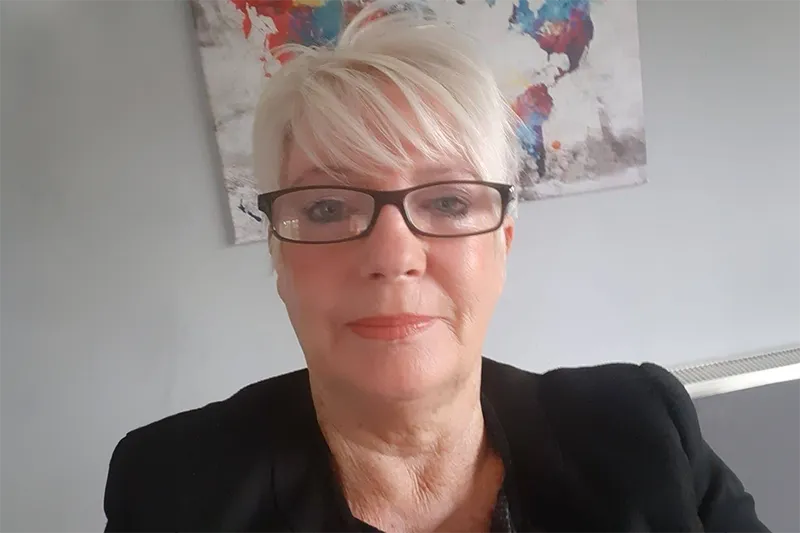Parlez-vous... anglais? Is a language skills shortage holding the UK travel sector back?
 Ilaria Grasso Macola
Ilaria Grasso MacolaThe UK’s outbound travel sector is a global industry that touches every part of the globe – yet for all the good it does bringing the world closer together, is the sector doing everything in its power to bridge these divides once the journey is over?
Travel has a language problem. And with second languages increasingly becoming more than just a nice-to-have for employers, not to mention a vital differentiator for candidates, the sector’s language skills gap is all the more incomprehensible in 2023. In fact, it would appear the industry has gone backwards.
Research published earlier this year by the University of Portsmouth revealed that most job adverts in the UK – not just those in travel – now list a second language as a requirement or a necessity, and not simply as desirable.
"It’s clear employers are crying out for candidates able to speak additional languages," said Dr Begona Rodriguez de Cespedes, senior lecturer in translation studies at Portsmouth University and the study’s author. "Our research has shown that across multiple employment sectors, an additional language isn’t just desirable, it is essential.”
The study makes for uncomfortable reading for travel, a sector for which the ability to speak languages other than English was – if not a pre-requisite – an expectation. “When I did my ski season in France, almost every rep and I – as resort manager – spoke French to varying degrees,” Skiworld sales and marketing director Diane Palumbo told TTG.
“What has happened in the subsequent years is that the number of graduates coming forward with foreign language skills just seems to have decreased.”
Plus ça change?
The problem, though, is far from unique to the UK and Irish travel trade. With every passing day, English inches closer to becoming the world’s de facto lingua franca. Why learn another language if everyone already speaks your mother tongue?
Barbara Kolosinska, managing director of C&M Travel Recruitment, said that the UK had long had a more significant language skills gap compared with other nations owing to the widespread adoption of English. “On the whole, British people don’t speak a second language as they are not pushed to learn one at school or university,” she said.
Claire Steiner, chair of education and training at the Institute of Travel and Tourism (ITT), said native English speakers had a tendency to be "quite lazy" about foreign languages. "I think there’s a feeling we don’t need it because everyone needs to know English if they want to do business globally, but that is changing," Steiner remarked.
Others believe factors such as Brexit have widened the gap in recent years, with the divisive vote precipitating the departure of hundreds of thousands of people for whom English wasn’t their first language.
“With Brexit, a lot of multi-lingual people left the UK, and that has led to a [skills] shortfall in the industry, particularly French and German speakers,” said Demi Crewe, director of recruitment agency Jayne Peirce Travel Recruitment.
Brexit also curtailed travel businesses’ freedom under the EU Posted Workers Directive to "post" UK residents overseas to work season travel roles, such as in ski chalets.
Skiworld’s Palumbo, who is also a director of Seasonal Businesses in Travel (Sbit), a trade body representing around 120 outbound travel businesses, suggested the UK’s language skills gap was ultimately a symptom of the UK government failing to recognise the economic value of travel.
“Prior to the pandemic, the travel industry contributed around £39 billion to the UK economy,” she said. “You’d think the government would back the skills needed by an industry that represents that kind of money. It feels like the travel industry has never really been recognised for its contribution to the economy, and that’s the root of the language skills gap.”
Positive change?
To overcome this gap, Kolosinska, Steiner and Crewe believe travel must first band together to highlight to government travel’s economic significance. “Travel is a key service industry for Great Britain and in order to support travel, we should have courses at colleges and universities that always include a foreign language,” Palumbo said.
“We need high-standard courses that are demanding and always include a period of time abroad because understanding the culture of the people you’re working with is equally important.”
Palumbo’s comments come after the Department for Education, late last year, committed nearly £15 million to expanding a language hubs scheme, designed to increase the quality of language teaching for 14- to 18-year-olds.
She said bridging the language skills gap would also help travel and tourism build better relations with foreign partners, especially in the post-Brexit era. “We should be doing more to move in the direction of our partners now that we’re out of the European Union,” Palumbo continued. “I think it’s arrogant to walk into a meeting and assume everyone around you speaks English.”
Steiner, meanwhile, said the government “should try and provide better advice and opportunities” in terms of career guidance where languages help.
Kolosinska, on the other hand, has called on the industry to shake up its recruitment practices to recruit people with the necessary language skills. “The sector should take on people who have got language and teach them the skills needed within the travel sector."
Crewe added it was incumbent on travel to work with schools and colleges, and to lobby government, to make the case for language teaching to be a more significant priority.
Brexit was supposed to be a platform for the UK to take control of its destiny on a global scale; however, where some saw opportunity, others predicted isolation.
In a post-Brexit world, language skills will no doubt prove increasingly important, if not essential, to travel maintaining optimal business relationships with partners – quite literally – around the globe.
Sign up for weekday travel news and analysis straight to your inbox
Supplier Directory
Find contacts for 260+ travel suppliers. Type name, company or destination.
















